Bengali scientists Rashtriya Vigyan Puraskar - GetBengal story
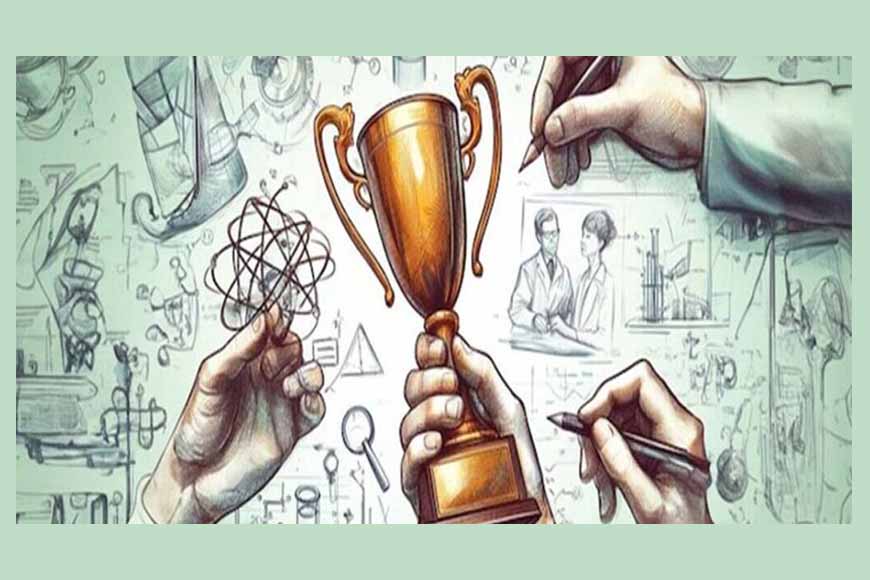
“The Government of India announced the names of 33 esteemed recipients of the annual Rashtriya Vigyan Puraskar (RVP) Awards 2024 and four scientists from West Bengal have made it to the prestigious list.
Only last year (2023), the Government of India launched “Rashtriya Vigyan Puraskar,’’ a new set of National Awards in the field of science, technology, and innovation to recognise the notable and inspiring contributions made by scientists, technologists, and innovators individually or in teams in various fields of science, technology, and technology-led innovation. The Rashtriya Vigyan Puraskar is currently one of the highest recognitions in the field of science, technology, and innovation in India. Scientists, technologists, and innovators working in government, private sector organisations, or any individual working outside any organisation who have made distinguished contributions in terms of path-breaking research, innovation, or discovery in any field of science, technology, or technology-led innovation are eligible for the awards. People of Indian origin staying abroad with exceptional contributions benefiting the Indian communities or society are also eligible for the awards.
There are four categories of awards: Vigyan Ratna (VR) recognises the lifetime achievements and contributions of an esteemed scientist in any field of science and technology. The Vigyan Shri (VS) award recognises distinguished contributions in any field of science and technology, and the Vigyan Yuva-Shanti Swarup Bhatnagar (VY-SSB) award recognises and encourages young scientists up to the age of 45 who make exceptional contributions in any field of science and technology. The Vigyan Team (VT) award is given to a team comprising three or more scientists, researchers, or innovators who have been working as a team and have made an exceptional contribution in any field of science and technology.
In the very first edition of this award, two eminent scientists from the state, Professor Rahul Mukherjee and Professor Naba Kumar Mondal, have been shortlisted for the distinguished Vigyan Shri Awards. This award is bestowed on 13 meritorious and deserving scientists from the country. Similarly, two young scientists, Professor Urbasi Sinha of the Raman Research Institute and Bappi Pal of the National Forensic Science University, are among the 18 scientists who have been awarded the Vigyan Yuva-Shanti Swarup Bhatnagar (VY-SSB) for their outstanding achievements in various fields of science and technology.
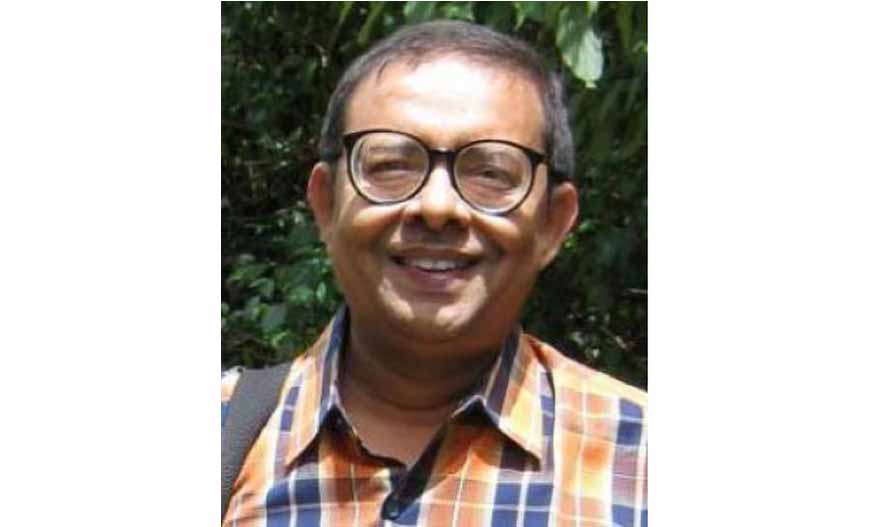 Professor Rahul Mukherjee
Professor Rahul Mukherjee
Professor Rahul Mukherjee is an academic, statistician, and former professor of statistics at IIM, Calcutta. An extremely popular teacher, he was voted ‘Professor of the Year’ by IIM Calcutta students in 2021. He is a National Science Chair of the Government of India after his superannuation from IIM, Kolkata, in 2021 as a professor in the higher academic grade. He is also an emeritus scientist of the Indian National Science Academy, New Delhi.
Professor Mukherjee completed his BSc (Hons) and MSc degrees in statistics at the University of Calcutta, acing all the exams and scoring the highest marks in his subjects throughout his college and varsity years. He received his PhD in statistics in 1982 from the University of Calcutta. He joined IIM Calcutta as a full professor in 1989. In addition to his full-time position at IIM Calcutta, he also held visiting positions at many top institutions around the world, including Harvard University, the Mathematical Sciences Research Institute, Berkeley, Rutgers University, the University of Michigan, Pennsylvania State University, the Georgia Institute of Technology, the University of Florida, the University of Toronto, the Memorial University of Newfoundland, Hiroshima University, and many more. Professor Mukherjee has also authored and co-authored numerous books and has published over 200 papers. He has received numerous awards and fellowships, including the Shanti Swarup Bhatnagar Award (2000), the J.C. Bose National Fellowship (2010–15, 2015–20), the Mahalanobis International Award (2017), and the P.V. Sukhatme National Award in Statistics (2018).
Professor Mukherjee has been on the editorial boards of such major international journals as The Annals of Statistics, Biometrika, Journal of the Royal Statistical Society Series B, and Statistica Sinica.
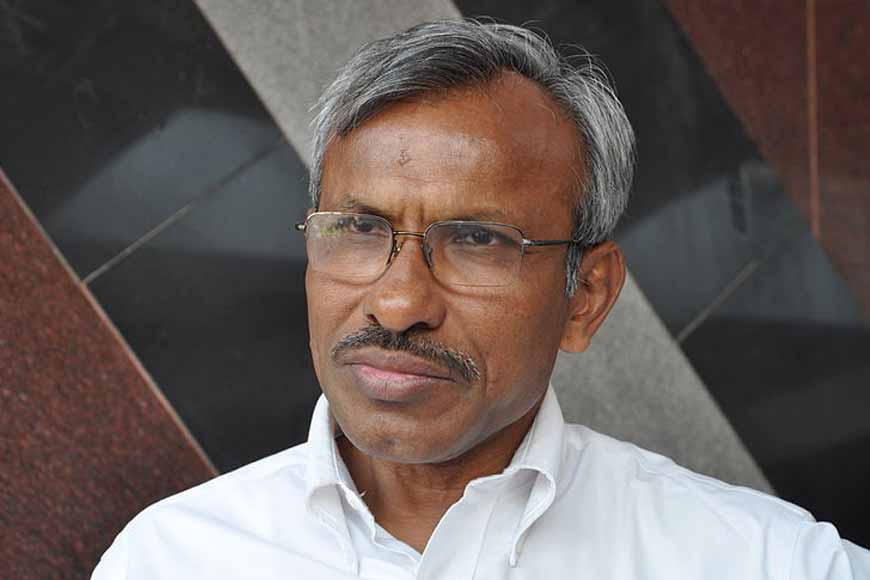 Professor Naba Kumar Mondal
Professor Naba Kumar Mondal
Professor Naba Kumar Mondal, an Indian National Science Academy (INSA) Raja Ramanna Fellow at the Saha Institute of Nuclear Physics, earned his BSc (Hons) and MSc in Physics from Burdwan University. He joined Tata Institute of Fundamental Research (TIFR), Mumbai (1977), worked with MGK Menon and VS Narasimham on the Kolar Gold Fields (KGF) proton decay experiment, and obtained his PhD degree (1983) from Bombay University. Mondal was associated with the pioneering Kolar Gold Field (KGF) proton decay experiment from its inception. He took a leading role in the design and construction as well as in the analysis of the data.
Professor Mondal worked at Argonne National Laboratory, USA (1985–86) for the development of the second-generation proton decay experiment at Sudan Mines, Minnesota, and on the CDF experiment at Fermi Lab, USA (1986–87). In 1988, he returned to TIFR and continued his work on various accelerator-based as well as non-accelerator-based particle physics experiments.
In 1991, Professor Mondal’s group joined the international collaboration experiment called DZERO at the Tevatron Collider at Fermi Lab. He was responsible for the design and fabrication of a large number of scintillator counters using wavelength-shifting (WLS) fibres to detect muons for this experiment. He played a leading role in the analysis of the data collected by the DZERO detector and was involved in the important discovery of the top quark, which was the only missing quark in the standard model of particle physics. He also used the DZERO data to put strong constraints on the masses of SUSY particles and extra-dimension parameters. Professor Mondal also looked for substructure inside quarks and leptons. He has published over 230 research papers and edited several books.
Professor Mondal had served in various capacities in the DZERO and CMS International Collaboration Experiments. He is a member of the DZERO Institutional Board and the CMS Collaboration Board. He is a member of the International Neutrino Factory Steering Committee, the OECD Astroparticle Physics International Forum, and the spokesperson of the India-based Neutrino Observatory (INO) Collaboration. Mondal is also leading a team of physicists and engineers from several research institutes in India with the motivation to set up a full-fledged underground laboratory in India for carrying out front-ranking experiments in the field of neutrino physics.
Professor Mondal is a Fellow of the National Academy of Sciences, Allahabad; the Indian Academy of Sciences, Bangalore; and the Academy of Sciences of the Developing World, Trieste, Italy. He has been awarded the J.C. Bose Fellowship by the Department of Science and Technology (DST), Government of India.
Two young teachers, Professor Urbasi Sinha, a faculty member in the Light and Atomic Matter Physics group (LAMP) at the Raman Research Institute, Bangalore, and Dr. Bappi Paul, Assistant Professor at the School of Engineering and Technology, National Forensic Sciences University (NFSU), Gandhinagar, have been named recipients of this year’s prestigious Vigyan Yuva Shanti Swarup Bhatnagar Puraskar.
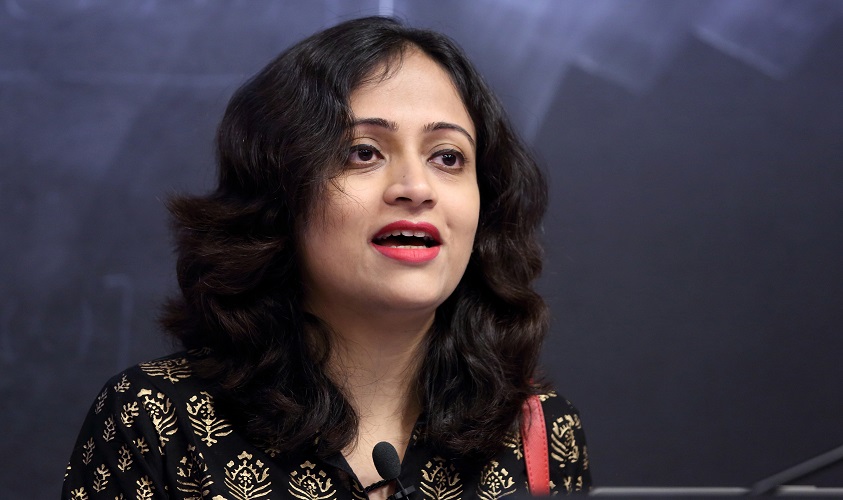 Professor Urbasi Sinha
Professor Urbasi Sinha
Professor Sinha is an alumnus of Jadavpur University who shifted to the UK to complete her BA, MA, and PhD from the University of Cambridge, UK. She is an affiliate member at the Institute for Quantum Computing in Waterloo, Canada, as well as the Centre for Quantum Information and Quantum Computing at the University of Toronto. She was a Homi Bhabha Fellow from 2017 to 2019 and a Simon’s Emmy Noether Fellow at the Perimeter Institute, Canada, from 2020 onwards. Her research interests are broadly classified as photonic quantum science and technologies. She works on experimental and theoretical aspects of secure quantum communications, quantum computing, and quantum optics, as well as precision tests of quantum mechanics and quantum information processing. She is heading India's first project on satellite-based QKD: Quantum Experiments using Satellite Technology.
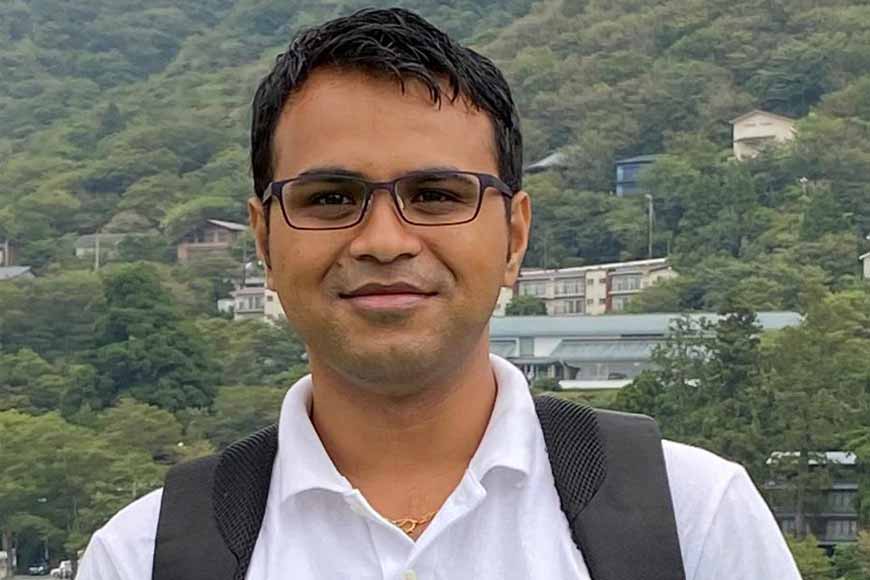 Dr. Bappi Paul
Dr. Bappi Paul
Dr. Bappi Paul holds a PhD in chemistry from the National Institute of Technology, Silchar, Assam. He completed his postdoc at CSIR, the Indian Institute of Petroleum, Dehradun, and the University of Tsukuba, Japan. Prior to joining NFSU, Professor Paul was working as a Ramanujan Fellow at the National Institute of Technology (NIT), Nagaland. He was also selected among 400 young scientists around the world to participate in the 67th Nobel Laureate meeting held in Germany. His name is listed among the top 2 percent of scientists for the years 2021–2022, published by Stanford University. This year, he has been named a recipient of the Vigyan Yuva Shanti Swarup Bhatnagar Puraskar.
The team from ISRO, the Indian Space Research Organisation, who successfully led the Chandrayaan-3 mission has been awarded the Vigyan Team Award for their exceptional contribution to the mission's success. Two Bengali scientists, Dwijendranath Swai and Prashant Kumar, are part of this team.
Celebrated biochemist and former director of the Indian Institute of Science (IISc), Bengaluru Professor Govindarajan Padmanabhan, has been selected for the first Vigyan Ratna Award, the topmost science award instituted by the government this year. The award recognises his lifetime achievement and immense contribution to the field of biological sciences. Professor Padmanabhan is best known for his pioneering work on the malaria parasite and his groundbreaking research in liver diseases, protein synthesis, and gene regulation. He is currently the Chancellor of the Central University of Tamil Nadu in Tiruvarur and an honorary professor at the Indian Institute of Science (IISc), Bengaluru.
All 33 awardees will be felicitated on August 23, 2024, at the Rashtrapati Bhawan Cultural Centre, marking the first National Space Day, which celebrates the successful moon landing of Chandrayaan-3. From now on, the new set of awards will be given every year and replace the 300-odd awards that were given by various science departments in the past.










